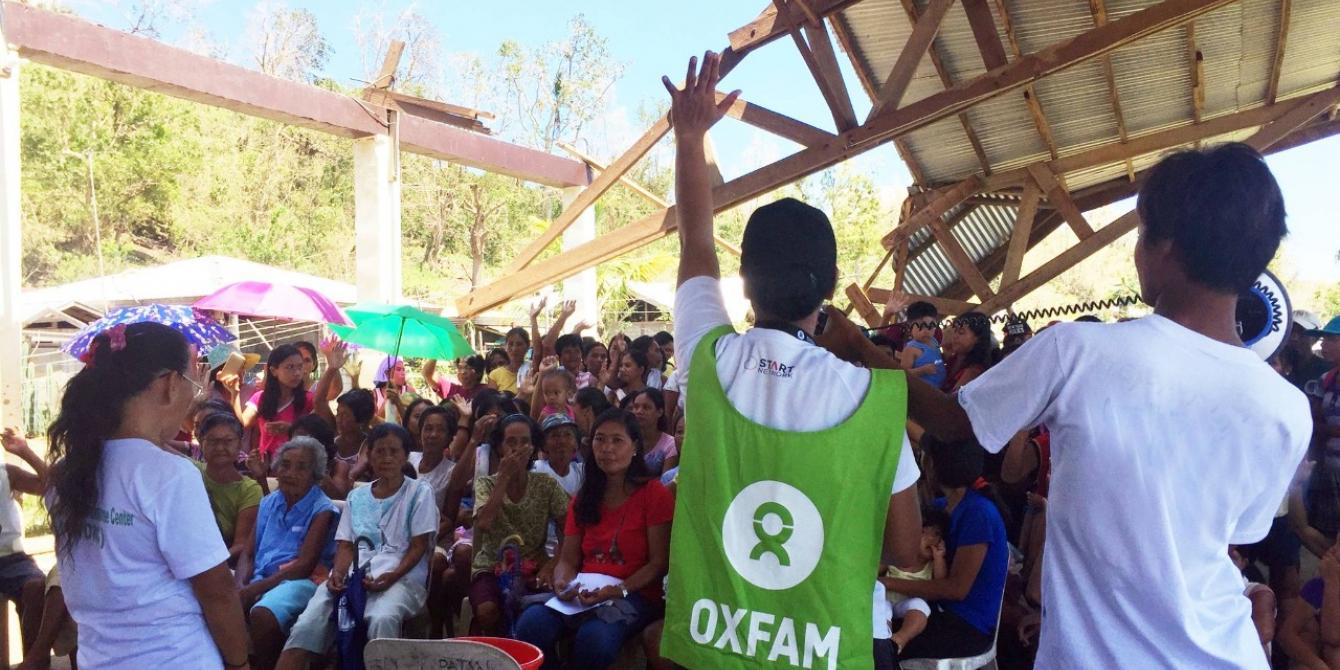
In the face of COVID-19, a new direction for Oxfam
One of the hardest things to do leading an organization such as Oxfam, whose work supports many struggles for justice and saves people’s lives, is to decide not to do things.
It is doubly difficult when people living in poverty are facing this deadly new coronavirus threat that will also increase inequality; when the World Food Programme warns of “biblical” famines; when we ourselves say it could push half a billion more people into poverty.
However today, the Oxfam confederation is reducing the number of countries in which it works. We will gradually be phasing out our physical presence in 18 of our 66 country offices and altering how we work in others.
Why, and why now?
This is the beginning of our 10-year new strategic vision that will transform Oxfam to become a key actor and ally to fight inequalities, power, and privilege where it grows. It will help us to make even more impact, ensure safe programming with local actors, and be the best operator we can in responding to humanitarian crises.
We began work months ago to rethink where and how Oxfam should work because a rapidly changing world demanded that we change with it. Countries can no longer be neatly divided as either developed or developing. Political power is no longer so concentrated in North America and Europe.
Oxfam is on a journey from a confederation where power was held by its northern members who funded lifesaving work in developing countries, to a global network of organizations working together with allies both to beat poverty and fight its root causes such as conflict, climate change, and gender and economic inequalities.
In the past few years, India, Mexico, Brazil, and South Africa have become full affiliates, with an equal voice in how we run our confederation. KEDV, a national organization, joined Oxfam as its Turkish member. We are now exploring the possibilities for six more in the Philippines, Indonesia, Senegal, the Pacific region, Kenya, and Colombia.
We are creating greater flexibility in how we will work. A “one-size-fits-all” approach makes little sense in a world where formerly low-income countries have become middle-income ones, while others have become more fragile because of political instability or conflict. The very concept of “delivering aid from the north” is turned on its head.
Just because we may no longer have an Oxfam office in one country will not mean we cannot work through allies, networks, and partnerships to support communities and social movements. In fact, with this review, we recommit to deepen our relationships with local partners everywhere we work and across the world.
But this is not only a smarter long-term strategy for us.
While the coronavirus crisis means that Oxfam’s work is needed now more than ever, we now have less money to pay for it.
Like many charities and businesses, the pandemic has hit our finances hard. We’ve had to close shops, cancel fundraising events, and absorb rising costs. Fundraising conditions in many countries are really tough. We need to make significant savings and so we have had to accelerate our change.
Reshaping our global presence is our first, I may say “foundational” change, so more will follow as we reconfigure our confederation to support this new-look Oxfam.
We will phase out our presence in these countries in a responsible way, honoring our commitments to partners and donors, and ensuring that our work with local people is properly handed over so that they have confidence in their futures.
This move will take time. We will lose around 1,450 staff and I pay tribute and give thanks to their brilliant work and dedication; our changes are no reflection on what they have accomplished. We’ve had to make some very difficult decisions.
In keeping with our ambition to shift power closest to those we exist to serve, we will work through local partners wherever possible. Indeed, in some countries, this will be our only way of operating. We will concentrate our resources in the most complex and dangerous environments, where the risk for communities is highest and where safe, high-quality programming costs more but can make the biggest difference to people’s lives. We will redouble our efforts to fight against gender inequality, both because it’s the right thing to do and key to beating poverty.
We would not have chosen to launch such a major change to our worldwide operations or at such speed were it not for this global pandemic. Fortunately, we had a strong platform from which to do so, even before the coronavirus hit.
Now that we have reshaped our country offices presence, we need to change our affiliate network over the next two months in order to support it. This is where we will secure long-term impact, cost reductions, and financial stability — improving how and where our network will share support services together, with greater efficiency and simplicity, and allowing teams to focus on our programmatic work.
Our sadness in phasing out our physical presence in some countries is tempered by our determination now to protect the people we work alongside from the coronavirus and our excitement about what a newly focused and more impactful and sustainable Oxfam can achieve in the next 10 years.

 Follow us on Facebook
Follow us on Facebook Instagram
Instagram Follow us on Twitter
Follow us on Twitter LinkedIn
LinkedIn